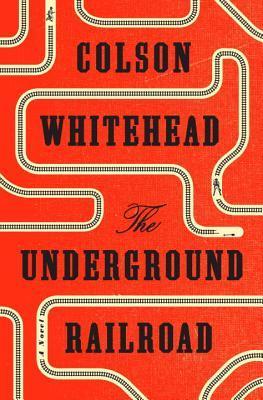
Title: The Underground Railroad
Author: Colson Whitehead
Publisher: Doubleday
Genre: Historical fiction, Alternate history, #OwnVoices
Colson Whitehead’s latest novel, The Underground Railroad, is, I dare to say it, a masterpiece. Despite the detached tone that turns off a few readers, the author gets to the heart of the horrible truths surrounding American chattel slavery in a way that most historical works have not. In addition to Alex Haley’s Roots, which comes with its fair share of controversy, Underground Railroad is one of the most powerful novels about slavery that I have ever read.
In Underground Railroad, we begin with a fairly straightforward story on a slave plantation. Cora is a slave on a cotton plantation in Georgia; she is also a stray and outcast amongst her fellow people. When Caesar, a slave relatively new to the Randall plantation, convinces her to run with him, she eventually agrees, and they both make their escape.
It is here, on page 66, that the story takes a turn into the realm of alternative history. For the Underground Railroad is not the version we find in our history books, but a real train line, built by slaves, buried deep underground.
The stairwell was lined with stones and a sour smell emanated from below. It did not open into a cellar but continued down. Cora appreciated the labor that had gone into its construction. The steps were steep, but the stones aligned in even planes and provided an easy descent. Then they reached the tunnel, and appreciation became too mealy a word to contain what lay before her.
The stairs led onto a small platform. The black mouths of the gigantic tunnel opened at either end. It must have been twenty feet tall, walls lined with dark and light-colored stones in an alternating pattern. The sheer industry that had made such a project possible. Cora and Caesar noticed the rails. Two steel rails ran the visible length of the tunnel, pinned into the dirt by wooden crossties. The steel ran south and north presumably, springing from some inconceivable source and shooting toward a miraculous terminus. Someone had been thoughtful enough to arrange a small bench on the platform. Cora felt dizzy and sat down.
Caesar could scarcely speak. “How far does the tunnel extend?”
Lumbly shrugged. “Far enough for you.”
“It must have taken years.”
“More than you know. Solving the problem of ventilation, that took a bit of time.”
“Who built it?”
“Who builds anything in this country?”
Throughout the novel, Colson borrows from history to reveal the true heart of darkness: slavery and the ongoing systemic racism in America. As Cora moves through each state: Georgia, South Carolina, North Carolina, Tennessee, Colson begins to tell a broader story. South Carolina is completely reinvented – I won’t go into too much detail to avoid spoilers – but it is definitely jarring, and brings together the pseudosciences of eugenics, forced sterilization, and the Tuskegee Syphilis Project. All is not as it appears, and what looks shiny and promising on the outside often hides a darker, menacing aspect within.
Stolen bodies working stolen land. It was an engine that did not stop, its hungry boiler fed with blood. With the surgeries that Dr. Stevens described, Cora thought, the whites had begun stealing futures in earnest. Cut you open and rip them out, dripping. Because that’s what you do when you take away someone’s babies – steal their future. Torture them as much as you can when they are on this earth, then take away the hope that one day their people will have it better.
I definitely see why this novel won the National Book Award. Colson Whitehead not only shows the struggles African-Americans have experienced during chattel slavery and beyond; he also touches on the way that white folks, and not just antebellum Southerners, justified their mistaken belief in racial superiority.
Interspersed throughout the story are chapters featuring a few of the minor characters: Caesar, Ridgeway, Dr. Stevens, Ethel. Some peopel take issue with these chapters as unnecessary, but I really appreciated them, particularly the chapters about Ridgeway and Caesar.
Whitehead writes in a detached way, and I know that is a turn-off for some people. I really enjoyed his writing style, and definitely recommend you give it a chance! In my opinon, it deserves all the accolades it has received.

